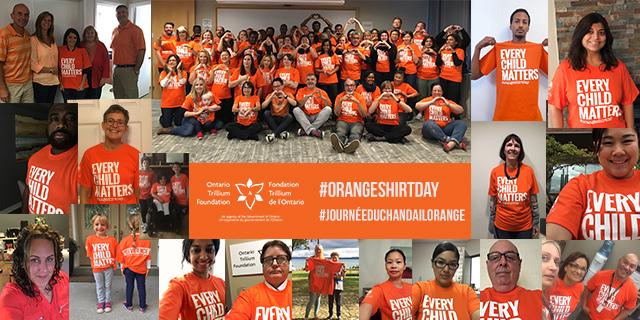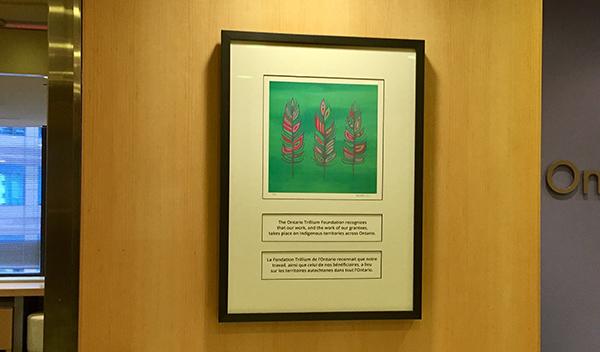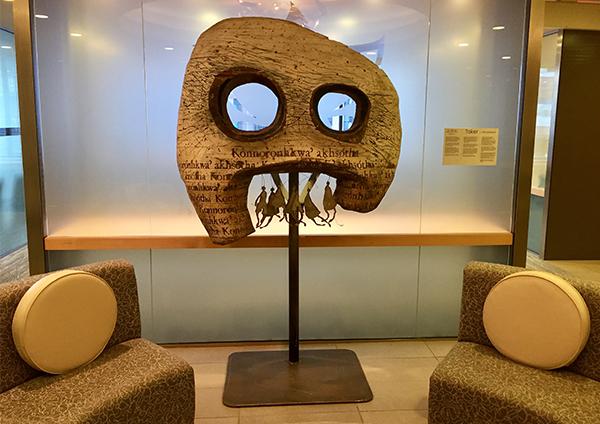Additional steps toward our commitment to Reconciliation
On Friday, September 29, the Ontario Trillium Foundation took additional steps toward delivering on the commitment to reconciliation we made in 2015.
On Friday, September 29, the Ontario Trillium Foundation took additional steps toward delivering on the commitment to reconciliation we made in 2015.
In June 2015, the Ontario Trillium Foundation was one of the first organizations to sign The Philanthropic Community's Declaration of Action. Signatories pledged to work towards reconciliation through this collective commitment, by ensuring that positive action will continue beyond the work of Canada’s Truth and Reconciliation Commission.
On Friday, September 29, all OTF staff participated in Orange Shirt Day, a day to recognize the harm the residential school system did to children. Staff from offices across Ontario observed the day by wearing orange shirts, and hearing from members of the Indigenous community, including a video about Phyllis Webstad, the person whose story inspired the creation of Orange Shirt Day.

Staff from across Ontario observed Orange Shirt Day on September 29 by wearing orange shirts to recognize the harm the residential school system did to children.
On the same day, we also installed in the lobby of 800 Bay Street in Toronto a framed land acknowledgment of the traditional Indigenous territories of what is now called Toronto.

Patrick Hunter, the artist for the print pictured above called Three Sisters, explained that the painting represents the three sisters in First Nations culture: squash, corn and beans. They are planted together because they help one another. The squash holds the corn stalks steady, and the beans grow up the corn stalks.
On the same day, we also unveiled an art installation in the lobby of 800 Bay Street. This art piece by Indigenous artist Michael Barber is a sculpture called Taker created in 2016 as part of the Mush Hole project. This initiative is part of the Woodland Cultural Centre’s campaign to Save the Evidence to assist with the cost of the repair of the residential school, the Mohawk Institute, in Brantford. Part of the proceeds from the purchase of the sculpture will support this campaign.

In July 2017, all OTF staff visited the Woodland Cultural Centre in Brantford to learn about the former residential school, the Mohawk Institute, and the history of the colonial system that inflicted harm to generations of Indigenous peoples. Taker, by Indigenous artist Michael Barber, was created in 2016 as part of the Mush Hole project to support the preservation of the Mohawk Institute. Taker was inspired by the artist’s grandmother, who survived the school where she was forbidden to speak in her language. She had never spoken about her experience there, but her last words before dying were in a language that the artist had never heard before. The message across the face is written in Mohawk and means “I love you Gramma.”
Finally, on the same day, we made additions on our website, including and our commitment to reconciliation page. The reconciliation page allows us to publicly acknowledge our commitment to reconciliation made through the signing the Declaration of Action.
We will continue to learn and remember, understand and acknowledge, participate and act.
